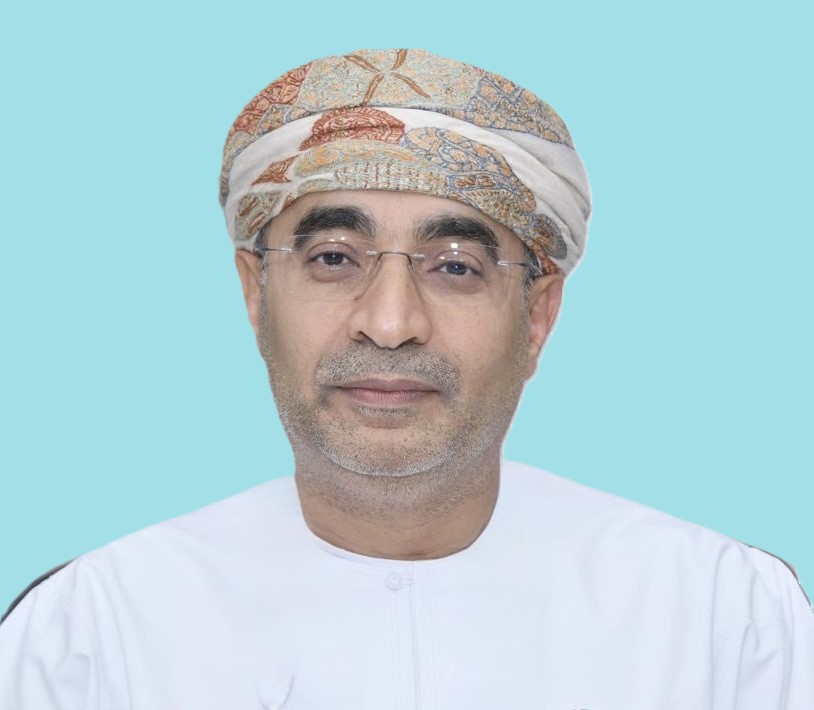AL-MAHREZI, Dr Abdulaziz
Oman - President WONCA EMR 2023 - 2025

Dr Abdulaziz Mahmood Nasser Al-Mahrezi (Oman) has served as President of the East Mediterranean Region of WONCA since 2023.
What inspired you to pursue family medicine, and how your career has evolved? Tell us about your current role.
My inspiration to pursue medicine came from my father, who served as the administrative director of one of the largest hospitals in Oman. I was deeply influenced by his leadership, composure during crises, and commitment to service. During my school summer breaks, I volunteered in various areas of the hospital, including administration, the laboratory, and patient services. These early experiences gave me valuable insight into the healthcare environment and strengthened my desire to become a physician.
I was awarded a scholarship to study medicine at the University of Glasgow. Upon returning to Oman, I joined the academic staff at Sultan Qaboos University Hospital (SQUH). Despite strong encouragement from senior specialists to pursue other fields, I remained committed to family medicine. I was drawn to its broad scope, its strong connection to the community, and the opportunity to address common and chronic conditions across all age groups.
I was among the first cohort of physicians to graduate from the national family medicine residency program in Oman. I then pursued further training in Canada, completing my residency at McGill University, followed by clinical fellowships in Palliative Care, Pain Medicine, Addiction Medicine, and Academic Family Medicine at the University of Toronto.
I am very proud to be the founder of modern family medicine residency training in Oman, having served as Chair of the Education Committee for eight years. This role allowed me to contribute significantly to the development and advancement of postgraduate medical education in the country.
Most recently, I served a three-year term as Director General of SQUH, a 436-bed tertiary care hospital with over 3,000 staff and all major specialties. It was a highly enriching leadership experience. Despite the administrative demands, I continued to practice family medicine throughout.
I have now returned full-time to the Department of Family Medicine & Public Health, where I provide care for patients whom I have known and followed for many years, teach medical students, and train residents. My current focus is on advancing research in chronic disease management and pain medicine.
You’ve served as WONCA’s East Mediterranean Region President for the last two years—what have been some of the highlights or challenges in that role?
Serving as President of WONCA’s East Mediterranean Region over the past two years has been both rewarding and challenging. The region faces significant obstacles, including political instability, ongoing conflicts, a critical shortage of family physicians, limited access to residency training in many countries, and weak or underfunded family medicine societies. Additionally, the specialty often does not receive the attention it deserves from Ministries of Health in the region.
Despite these challenges, there have been notable achievements. The Libyan Family Medicine Society joined WONCA as a new member, reflecting growing engagement in the region. We successfully organized two regional family medicine conferences—one in Amman, Jordan in 2024, and the other in Tangier, Morocco in 2025—which provided valuable platforms for collaboration, knowledge exchange, and advocacy.
A major milestone has been the launch of a Diploma Program in Family Medicine, developed through collaboration between WONCA, the WHO, and the Arab Board of Health Specializations. The program is gaining momentum and popularity among physicians across the region, aiming to bridge the gap between the high demand and limited supply of trained family physicians.
What advice would you give to young or early-career doctors in your region who are considering a career in family medicine?
Family Medicine is the foundation of any successful healthcare system—it is the oldest and most essential specialty in medicine. To young and early-career doctors considering this path, I offer the following advice:
- Keep a critical and curious mind. Always question existing guidelines and systems with the aim of improving care. Embrace innovation in every aspect of your practice, from patient care to education and research.
- Never underestimate your capabilities or the value of the specialty.
- Finally, remember that the future of medicine depends on collaboration. Family physicians and specialists must work together with mutual respect and shared purpose, each complementing the other to provide holistic, patient-centered care.
Outside of medicine, what are some of your personal interests or passions?
Outside of medicine, I enjoy listening to traditional Arabic music as well as relaxing Western and country music. Traveling is another passion of mine, particularly to explore the traditions and cultures of different countries. I also enjoy watching movies.
Above all, I value spending quality time with my family. I am especially proud of their individual achievements. My wife, Amna, is a professor in Pediatric Neurology. Our eldest son, Omar, did finance and works in the banking sector. Mohammed, our youngest, will be entering the sixth grade. Reem is pursuing her law degree at the University of Manchester, and Rawan has just completed high school and aspires to study economics.